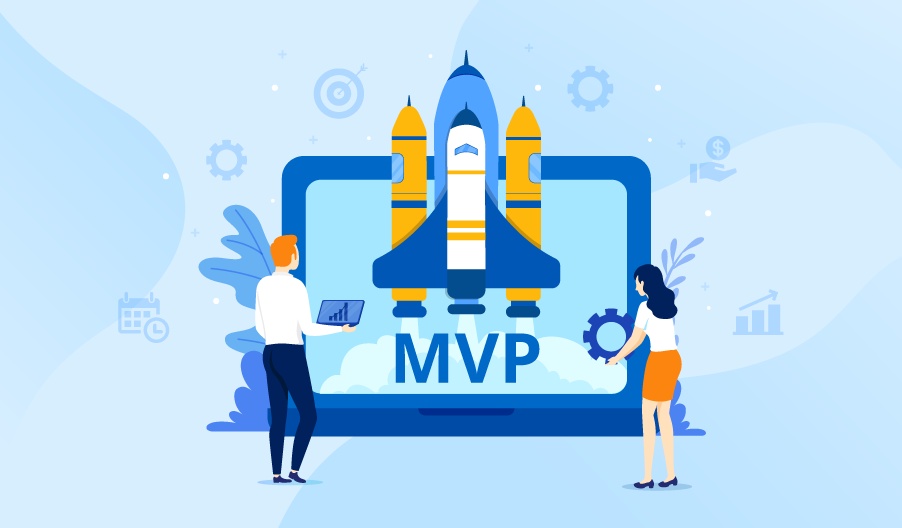For many startups and entrepreneurs, budget constraints can be a significant challenge when it comes to building a Minimum Viable Product (MVP). However, a limited budget doesn't have to impede your progress. In this guide, we will explore strategies, tips, and tricks to help you build a successful MVP while keeping costs in check.
1. Prioritize Features Strategically
When working with a limited budget, it's essential to prioritize features carefully. Identify the core functionalities that are necessary to test your product's viability. Focus on what's essential and cut or delay non-essential features. This approach helps you allocate resources efficiently.
2. Keep It Simple
The MVP's primary purpose is to validate your idea with minimal investment. It doesn't need to be feature-rich. Keep the design and functionality simple. Complex features not only increase development costs but also make it harder to gather valuable user feedback.
3. Choose the Right Development Approach
Consider using cross-platform development frameworks like React Native or Flutter. These frameworks allow you to build a single codebase that works on both Android and iOS, saving time and development costs.
4. Outsource Development
Outsourcing development work to countries with lower labor costs can be a cost-effective solution. Freelancers and offshore development teams can often provide quality work at a fraction of the price of in-house development.
5. Explore No-Code and Low-Code Solutions
No-code and low-code development platforms empower non-technical individuals to create applications with minimal coding. These platforms can significantly reduce development costs and accelerate the MVP creation process.
6. Leverage Open Source Tools and Libraries
Utilize open-source software and libraries to expedite development. There are open-source solutions available for various aspects of app development, from front-end frameworks to database management systems.
7. Validate Your Idea Before Development
Before investing in development, validate your idea with potential users. Conduct surveys, interviews, and prototype testing to gather feedback and ensure that your MVP addresses real pain points.
8. Build a Landing Page or Prototype
Consider building a simple landing page or a clickable prototype to showcase your idea and gather early sign-ups or feedback. This approach allows you to gauge interest before fully developing the MVP.
9. Create a Detailed Scope of Work
A well-defined scope of work helps you avoid scope creep, which can increase development costs. Be specific about what you expect from your MVP, including features, design, and functionality.
10. Embrace Agile Development
Adopt an agile development methodology, which focuses on incremental and iterative development. This approach allows you to make adjustments along the way based on feedback and changing requirements.
11. Use Freelancers and Gig Workers
Platforms like Upwork, Freelancer, and Fiverr offer access to a vast pool of freelance developers, designers, and other professionals. This flexibility can be a budget-friendly option for specific tasks or roles.
12. Negotiate Contracts and Pricing
When working with development agencies or freelancers, don't hesitate to negotiate contracts and pricing. Many providers are willing to adjust their rates to accommodate your budget.
13. Explore Equity-Based Agreements
Consider offering equity or a share of future profits to developers and collaborators in exchange for reduced upfront costs. This approach aligns their interests with the success of your MVP.
14. Bootstrap and Self-Fund
If your budget is extremely tight, consider bootstrapping your MVP. Invest your own savings, seek funding from friends and family, or explore personal loans. While this involves financial risk, it gives you full control over your project.
15. Take Advantage of Free Resources
The internet offers a plethora of free resources, from development tools and templates to online courses and communities. Take advantage of these resources to reduce costs.
16. Continuous Learning
If you have the time and willingness to learn, consider acquiring the skills needed for development, design, or other aspects of MVP creation. Learning platforms like Coursera, edX, and Codecademy offer cost-effective courses.
17. Limit Marketing Expenses
Focus on grassroots marketing and organic growth to reduce marketing costs. Use social media, content marketing, and email outreach to reach your initial audience.
18. Choose the Right Hosting and Infrastructure
When your MVP is ready to launch, opt for cost-effective hosting and infrastructure solutions. Services like AWS, Google Cloud, and Azure offer free tiers or startup credits.
19. Monitor and Optimize Costs
Continuously monitor your expenses and look for areas to optimize. Are you paying for unused services or licenses? Can you find more cost-effective solutions?
20. Seek Feedback and Iterate
Once your MVP is live, gather user feedback and iterate based on that feedback. This iterative approach ensures that you're investing resources in the right places and building a product that users truly want.
Conclusion
Building an MVP on a budget is not only possible but can be a rewarding and educational experience. By prioritizing features, choosing the right development approach, and leveraging cost-effective solutions, you can bring your idea to life without breaking the bank. Remember that success is not solely determined by the size of your budget but by your ability to make smart decisions, iterate, and respond to user feedback. With the right mindset and strategies, you can turn your limited resources into a successful MVP development journey and, ultimately, a thriving product. The MVP, as the cornerstone of this process, not only validates your concept but also allows you to refine and enhance your product over time, making it a vital step in the path to long-term success.


No comments yet